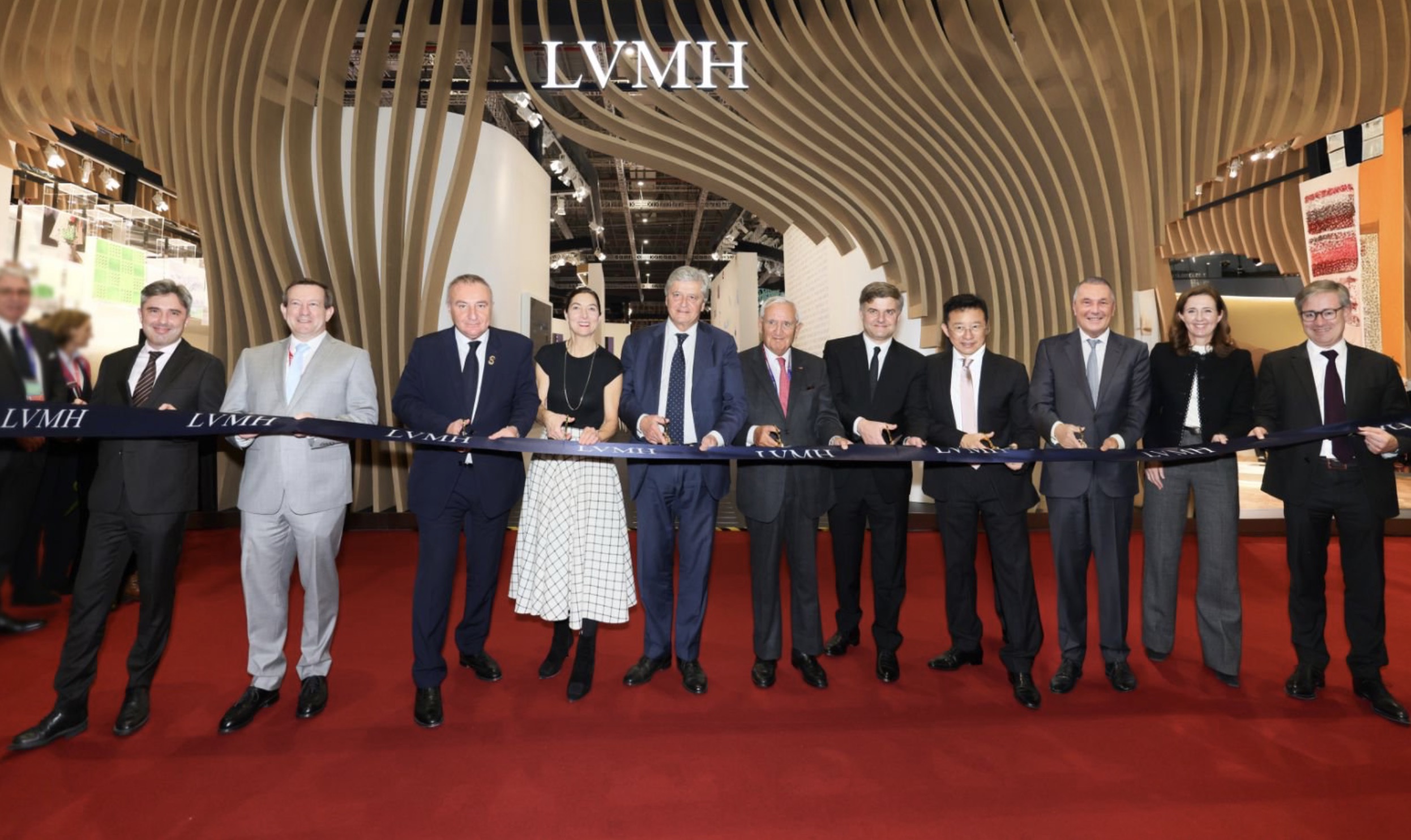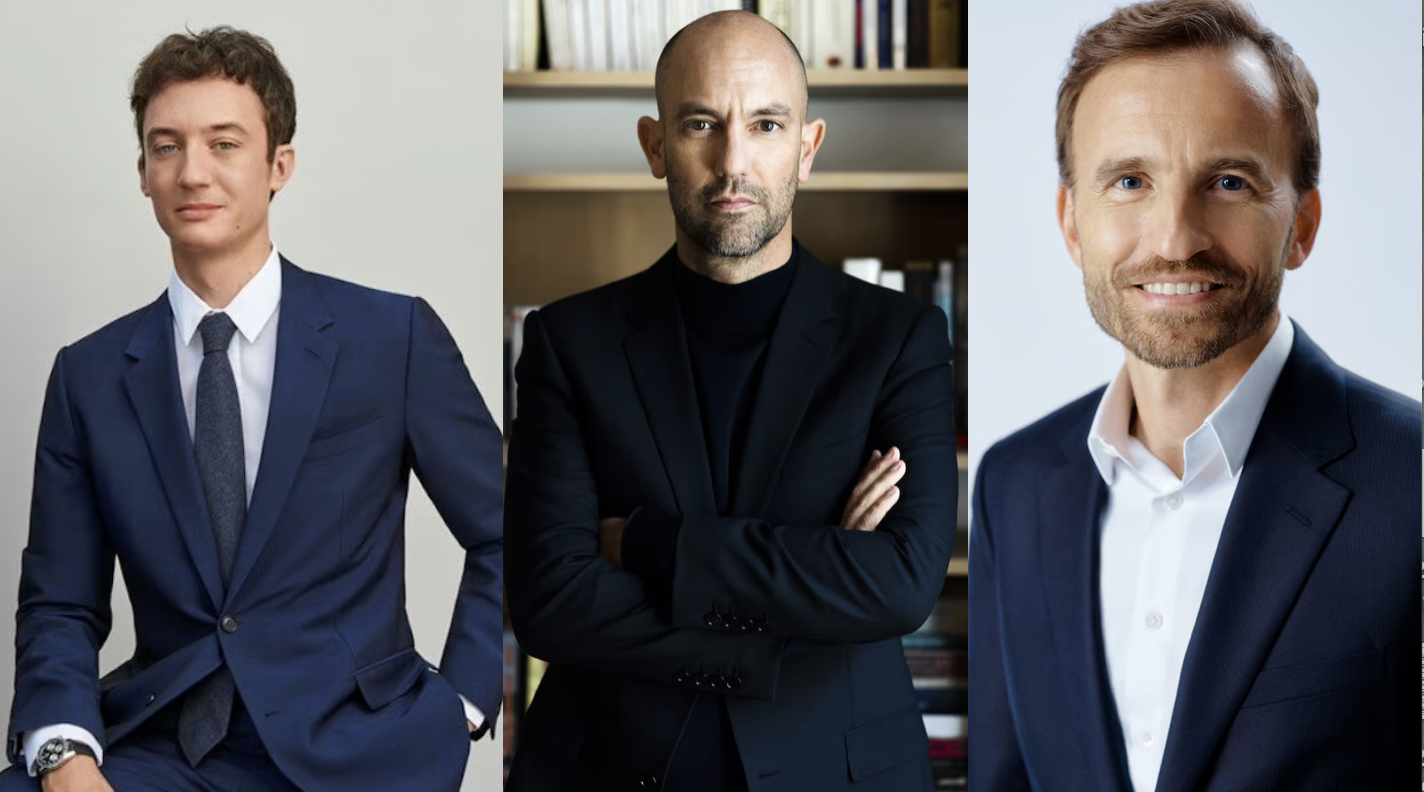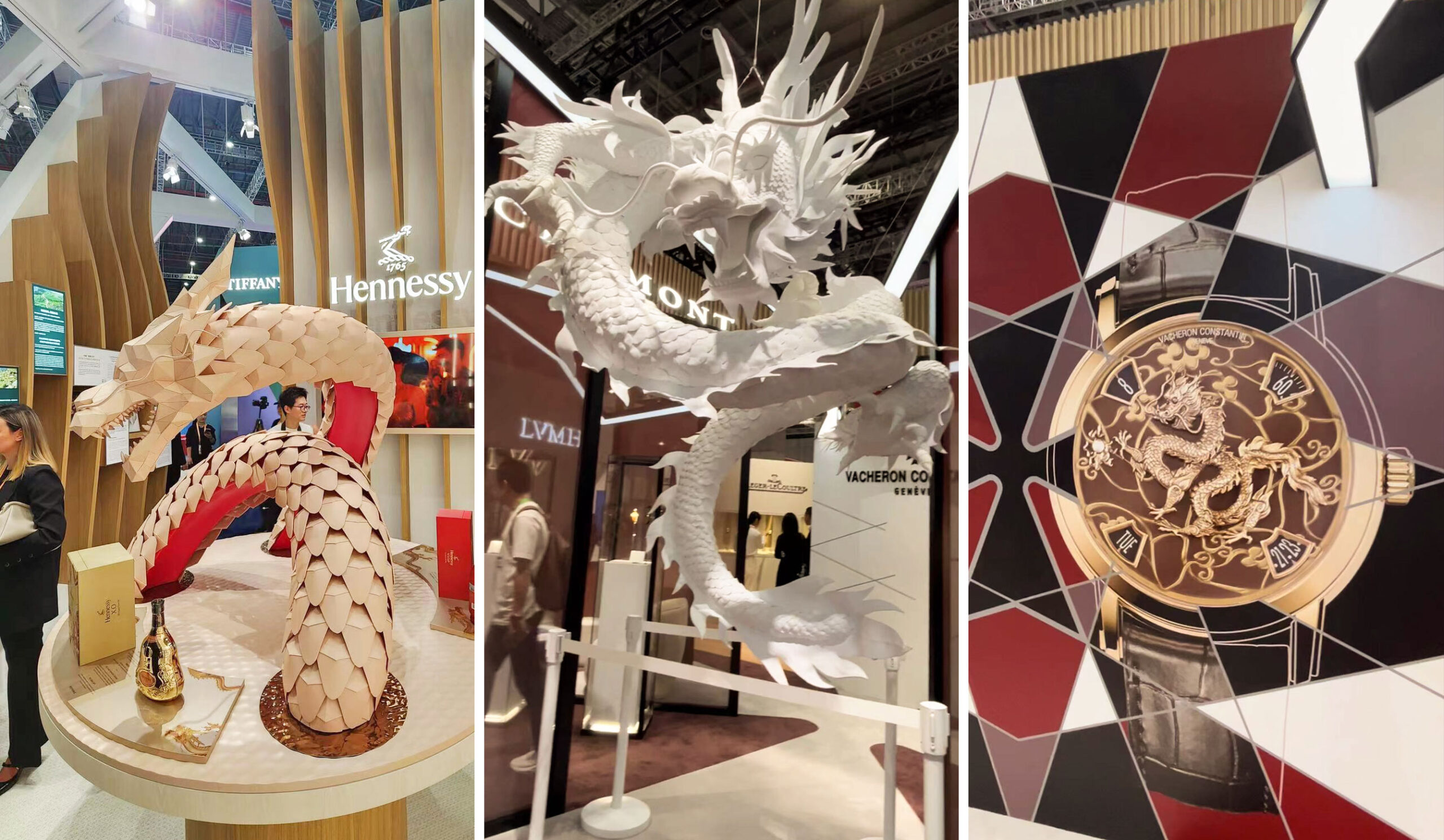How does AI (artificial intelligence) properly integrate with “fashion”? We found some latest answers at the 2024 VivaTech tech conference in Paris!
From May 21 to 25, the eighth edition of Viva Technology was held at the Porte de Versailles Exhibition Center in Paris, France. This year’s event attracted more than 13,500 startups, a 20% increase from 2023, and over 165,000 on-site attendees, a 10% increase from 2023.
As Europe’s largest startup and tech event, VivaTech showcased the comprehensive application of AI across various fields. According to the organizers, approximately 40% of the exhibitors presented AI-related innovations. As stated in the opening speech of the exhibition: “All eyes are on AI, and VivaTech is the place to understand how AI is reshuffling the cards for every business.”
The Luxe.CO team delved into this year’s VivaTech to specifically investigate the innovative applications of AI in the fashion industry. The fashion industry, which requires a vast amount of creativity, content output, and consumer interaction, has become a crucial field for the breakthrough of Generative AI technology in recent years. It was evident that AI is transitioning from concept to reality, becoming an infrastructure embedded in various stages from design to production to retail.
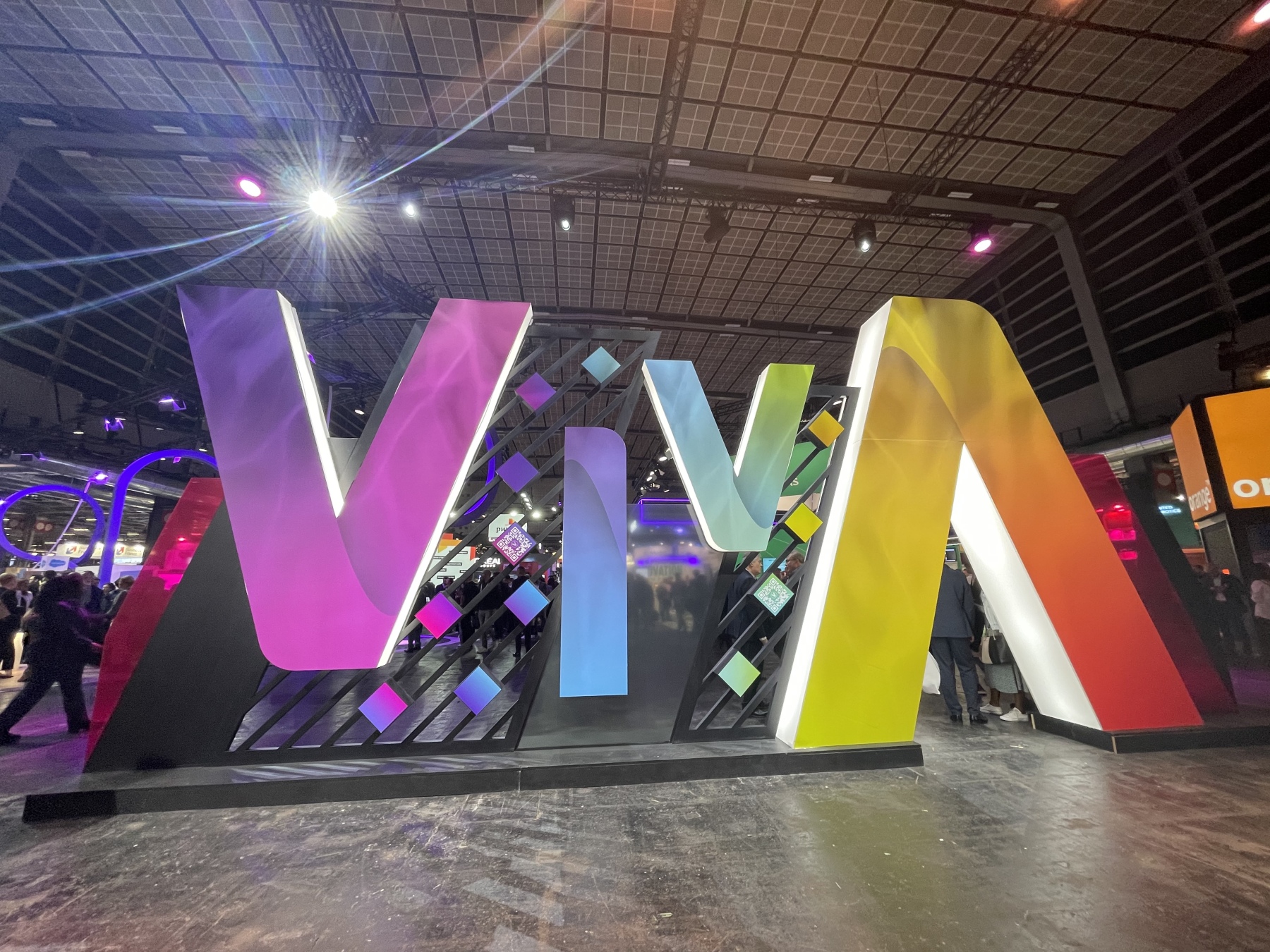
Note: Generative artificial intelligence is a type of AI used to create new content and ideas, including conversations, stories, images, videos, and music. AI technology attempts to mimic human intelligence in non-traditional computing tasks such as image recognition, natural language processing (NLP), and translation.
Generative AI Assists Brand Content Production
The French beauty giant L’Oréal Group showcased its CREAITECH Generative AI Beauty Content Lab. The lab is equipped with various technologies such as large language models and diffusion models to help the group’s brands massively create localized content that aligns with brand tone. To date, L’Oréal Group has tested more than 20 generative AI technologies in this safe experimental space and has conducted dozens of workshops with its brands, creating over 1,000 beauty images.
CREAITECH first developed Brand Custom Models, trained with the core codes of L’Oréal brands to generate content consistent with the brand tone. La Roche-Posay and Kérastase were among the first brands to adopt this custom service to assist content creation.

A poster of Kérastase generated on-site by the Brand Custom Models.
The top prize winner of the eighth LVMH Innovation Award, the Chinese startup FancyTech, showcased innovative applications of AI in video content generation, using its self-developed video industry model, Deep Video, to implement AI-generated content solutions in consumer scenarios. Interestingly, the trophies for this year’s LVMH Innovation Award were also created with the support of generative AI.

According to the head of LVMH’s Digital Innovation Department, FancyTech is exploring business models for AI services. Currently, brands pay FancyTech for AI-generated videos. As a reward, finalists of the Innovation Award enter the incubator program La Maison des Startups, receiving ten months of support and guidance, as well as opportunities to collaborate with the group’s brands and practice AI applications.
Product Design: Generative AI as an Extension of Inspiration
While AI cannot replace human creativity and craftsmanship, generative AI tools can extend inspiration, creating videos, composing music, and aiding in the design of clothing, jewelry, fragrances, and more.
The special award winner of the LVMH Innovation Award, BLNG, used generative AI to replace manual labor in creating jewelry prototypes and traditional photography, simulating the “Sketch-to-Design” process. Even if the designer provides just a simple sketch or a few inspiration keywords, BLNG’s AI model can transform it into a high-fidelity visual jewelry design drawing (as shown below). The Luxe.CO team further discussed with BLNG founder Valerie Leblond on-site about the feasibility of adjusting AI design drawings and applying them to production.
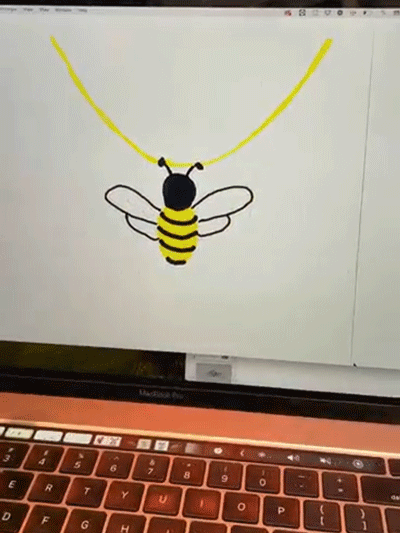
In more established applications, BLNG launched a library of digital hand models in ten skin tones, along with customizable options for nail polish, backgrounds, and body postures, quickly creating realistic marketing visuals. This technology has already partnered with LVMH’s high jewelry brand Tiffany. Valerie Leblond, the founder of BLNG, demonstrated the collaboration results.
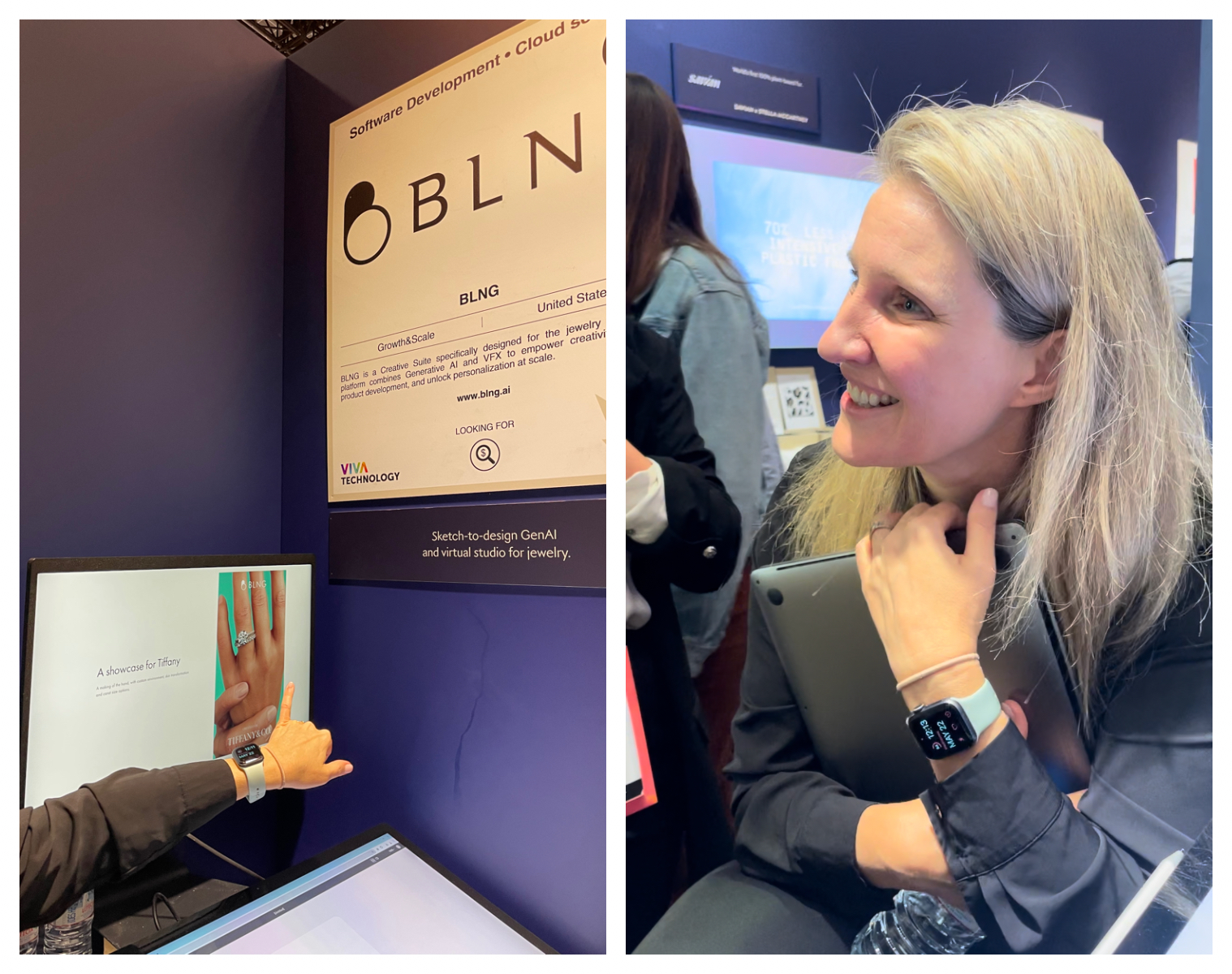
Dutch AI startup ScenTronix showcased the world’s first “Algorithmic Perfumery” machine, attracting many visitors to try it out. This machine, composed of sensory components of various sizes, contains a large model with over 500 ingredients for rapid fragrance formation, exploring unknown olfactory realms to help people create unique perfumes.
In its “Library,” ScenTronix has created a series of machine-synthesized perfumes. “These perfumes are just a small part of the many possibilities, with the potential combinations being endless.”
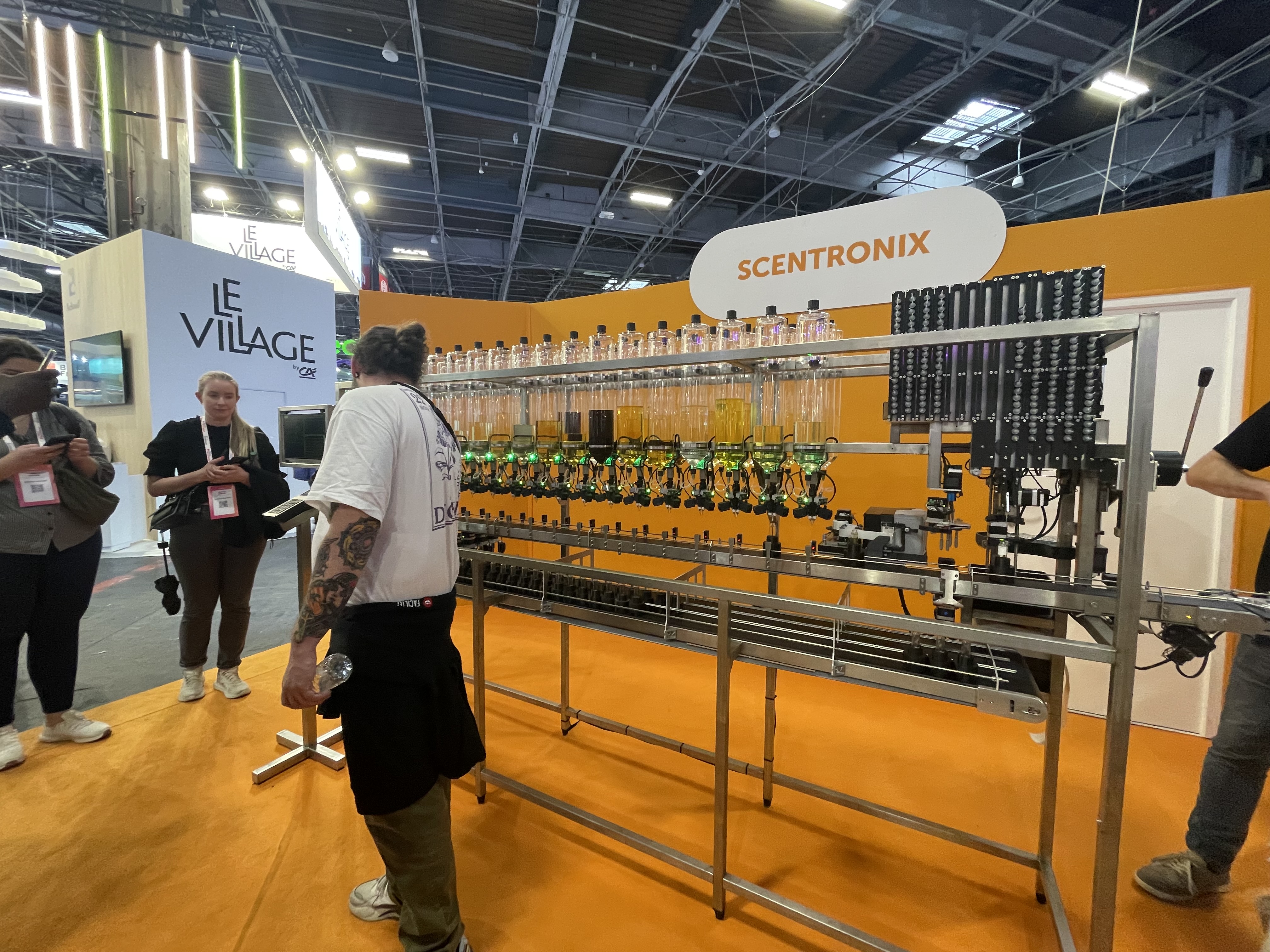
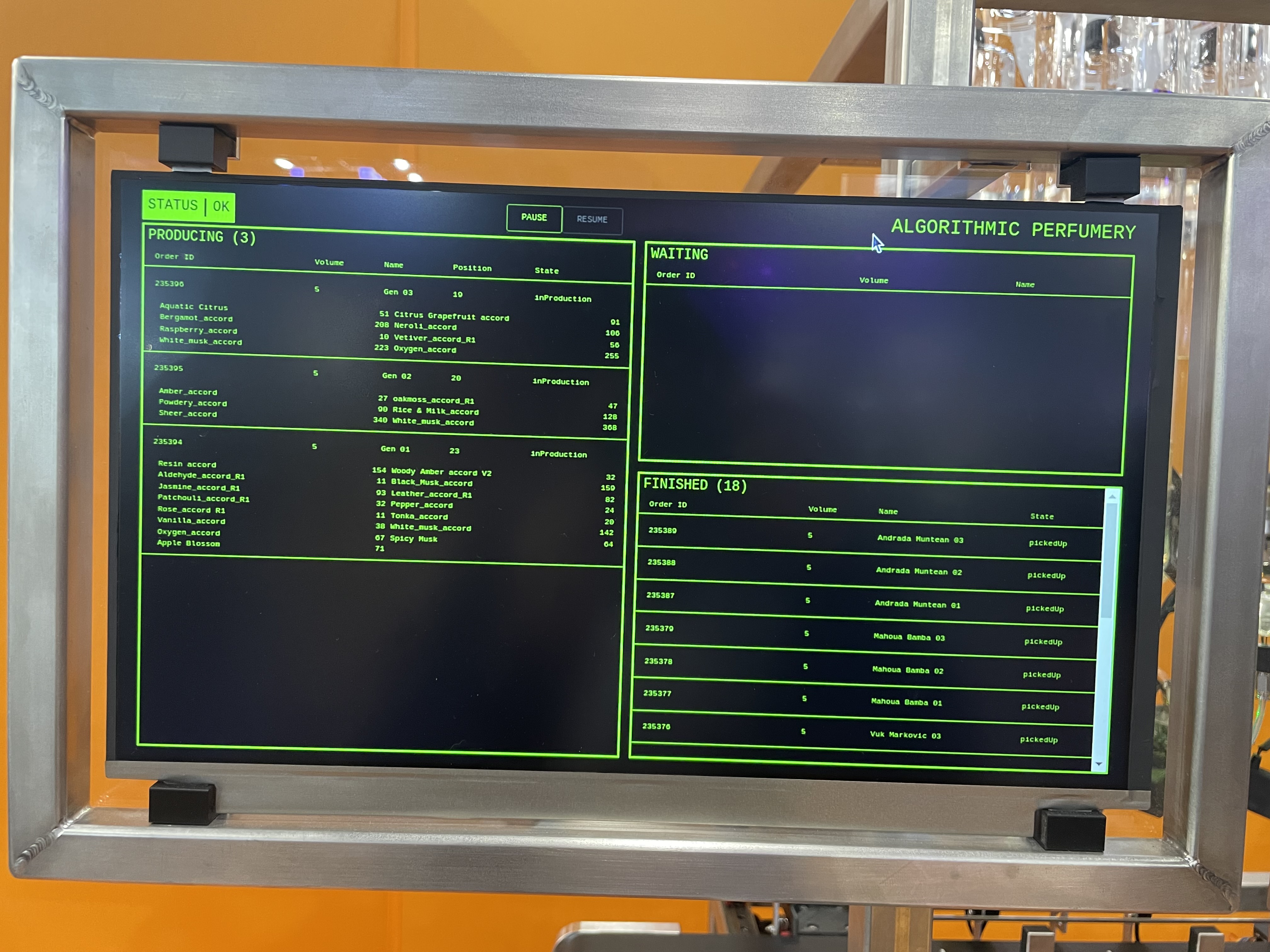
French tech company imki provides customized “commercial” AI solutions for fashion design companies. Founder Frédéric Rose, a graduate of a renowned French art school with 20 years of creative work experience, aims to establish the best “artisan” generative AI in the creative industry. Currently, imki’s 25-person team includes AI engineers, data scientists, stylists, and fashion brand executives.
This AI technology identifies the brand’s DNA and product attributes, entering the process from creative exploration to iterative design until product finalization. It enhances product market entry efficiency and effectively reduces the risk of unsold inventory. At this year’s VivaTech, imki showcased a 100% AI-generated denim capsule collection, developed in collaboration with Turkish denim manufacturers Kipas Textiles and Tayp, completing the design and production of three silhouettes in under 21 days.
Enhancing Brand Retail and Improving User Experience
In the “LVMH Dream Garden” special exhibition area, LVMH Group presented 19 innovative projects from 13 brands, with AI applications playing a crucial role.

Dior demonstrated various uses of AI and generative AI, including product enhancement, creating display windows, predicting logistics, and visual search—helping sales consultants immediately identify Dior products in a photo. They also introduced the AI platform Astra, which aggregates customer reviews from multiple channels, including Google reviews, product pages, customer service interactions, satisfaction surveys, and in-store conversations. Astra integrates this vast data to identify the latest trends or topics and monitor consumer reactions in real-time.
Loro Piana presented an interactive experience, using AI to create a “digital twin” to try on the brand’s clothing and explore suitable styles and designs.

Louis Vuitton‘s exhibition showcased the AI tool Extraordinaires AI-Configurator, which provides style and product recommendations based on customers’ photos and prompts, enhancing the in-store shopping experience.
Guerlain presented a multi-sensory immersive experience combining auditory, 3D visual, and olfactory elements. Visitors could wear VR headsets with scent diffusion functions to enjoy dreamlike landscapes designed by AI while smelling iconic Guerlain fragrances.
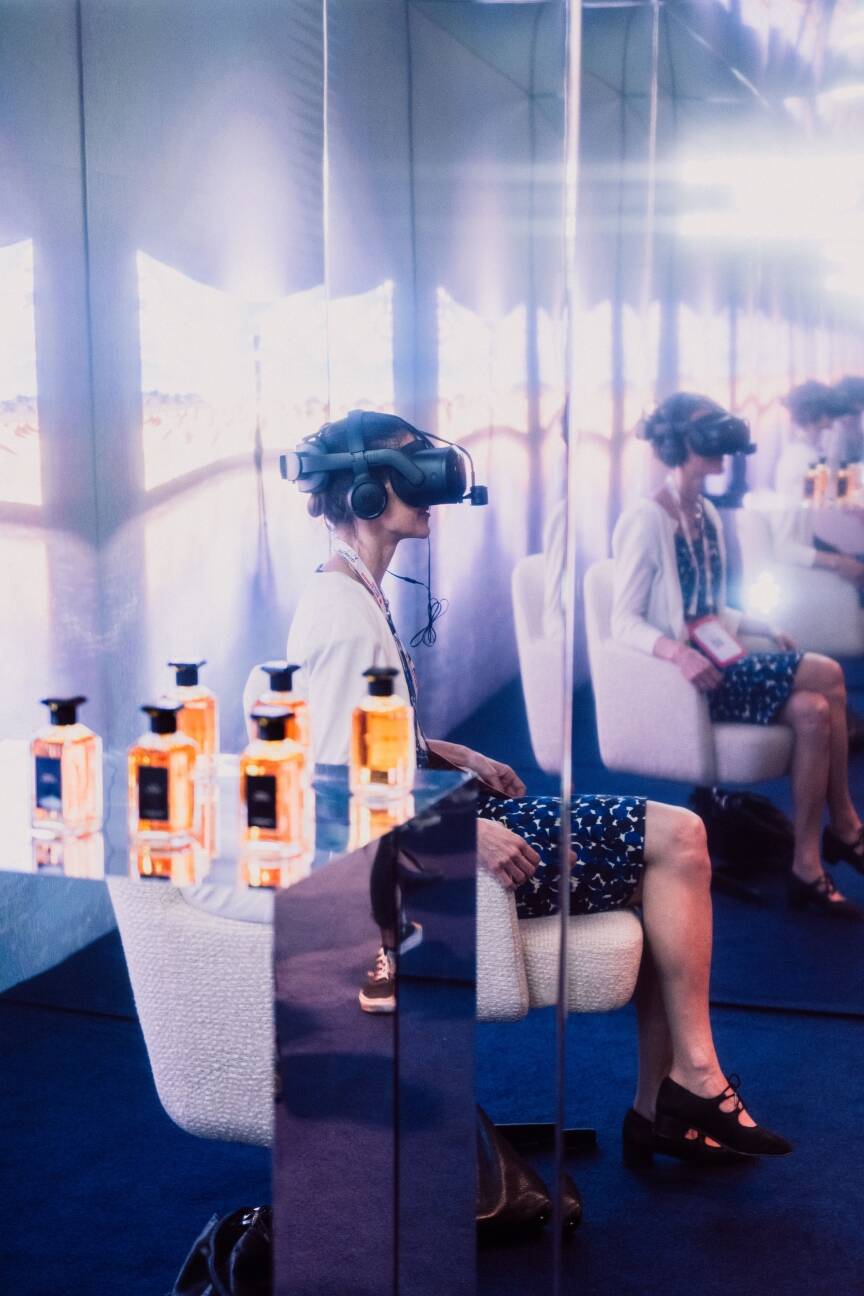
More startups at this year’s VivaTech demonstrated how AI can be applied to design, manufacturing, retail, and other aspects, including:
- BeauNex: Focuses on developing AI home beauty devices, including skin measurement devices, cushion foundations, masks, and ampoules, which assess environmental factors, user behavior patterns, and skin data to formulate personalized cosmetics.
- BEAUTE INEE: An innovative skincare tracking platform integrating AI remote consultations, expert advice, and more.
- Experience Maison M: Uses AI to customize natural, vegan lip colors from a single photo.
- Veesual: Showcases different body shapes, ages, and skin tones on models using generative AI technology.
- 4GIFT: An AI virtual product finder that customizes recommendations for each user, enhancing the gifting experience.
- ONOUT: Transforms fashion creators’ videos into dynamic shopping experiences using multi-modal AI.
- Ako: An AI-supported inventory management software that helps retailers hold the right products at the right time and place.
- z-emotion: A 3D fabric design and simulation provider offering comprehensive 3D x AI digital solutions, including virtual try-ons, showrooms, and fashion and business configurators.
- GOLDENEYE SAMET VISION: An unsupervised AI fabric digitization and intelligent quality control solution.
- Humanitics Retail Performance: An AI-powered application that helps store managers optimize performance directly from the sales floor.
| Sources: VivaTech, LVMH Group, L’Oréal Group
| Image Credit: Luxe.CO On-Site photography, LVMH Group website
| Editor: Maier

